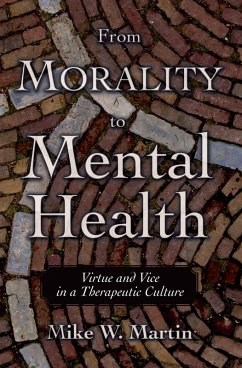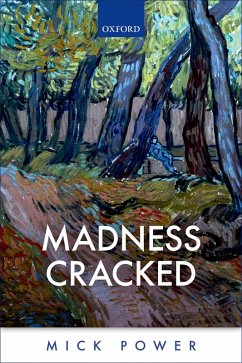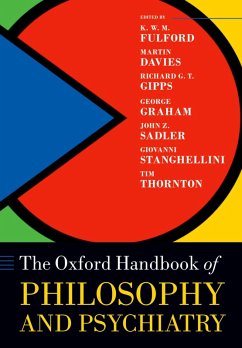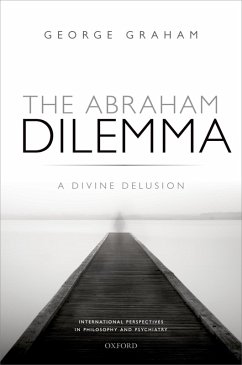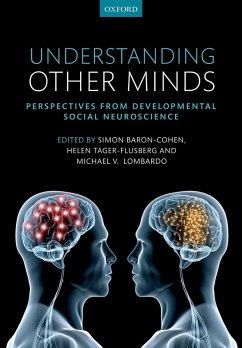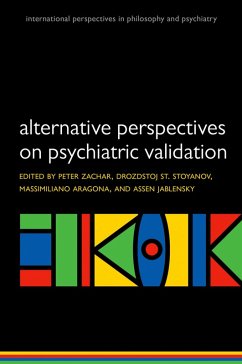
The Oxford Handbook of Philosophy and Psychoanalysis (eBook, PDF)

PAYBACK Punkte
46 °P sammeln!
Psychoanalysis is often equated with Sigmund Freud, but this comparison ignores the wide range of clinical practices, observational methods, general theories, and cross-pollinations with other disciplines that characterise contemporary psychoanalytic work. Central psychoanalytic concepts to do with unconscious motivation, primitive forms of thought, defence mechanisms, and transference form a mainstay of today's richly textured contemporary clinical psychological practice. In this landmark collection on philosophy and psychoanalysis, leading researchers provide an evaluative overview of curren...
Psychoanalysis is often equated with Sigmund Freud, but this comparison ignores the wide range of clinical practices, observational methods, general theories, and cross-pollinations with other disciplines that characterise contemporary psychoanalytic work. Central psychoanalytic concepts to do with unconscious motivation, primitive forms of thought, defence mechanisms, and transference form a mainstay of today's richly textured contemporary clinical psychological practice. In this landmark collection on philosophy and psychoanalysis, leading researchers provide an evaluative overview of current thinking. Written at the interface between these two disciplines, The Oxford Handbook of Philosophy and Psychoanalysis contains original contributions that will shape the future of debate. With 34 chapters divided into eight sections covering history, clinical theory, phenomenology, science, aesthetics, religion, ethics, and political and social theory, this Oxford Handbook displays the enduring depth, breadth, and promise of integrating philosophical and psychoanalytic thought. Anyone interested in the philosophical implications of psychoanalysis, as well as philosophical challenges to and re-statements of psychoanalysis, will want to consult this book. It will be a vital resource for academic researchers, psychoanalysts and other mental health professionals, graduates, and trainees.
Dieser Download kann aus rechtlichen Gründen nur mit Rechnungsadresse in A, B, BG, CY, CZ, D, DK, EW, E, FIN, F, GR, HR, H, IRL, I, LT, L, LR, M, NL, PL, P, R, S, SLO, SK ausgeliefert werden.





